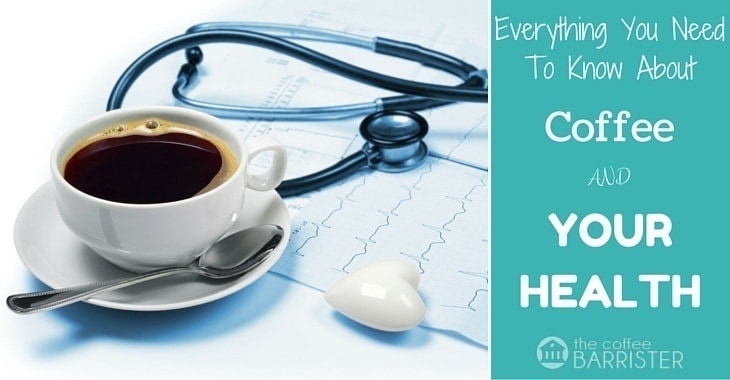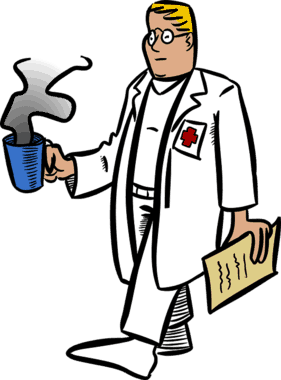
How many cups of coffee do you drink a day? How often do you think about it’s impact on your health? According to several researchers around the world, caffeine actually offers many benefits.
In short, there are many benefits when you drink just black coffee (coffee without milk, cream, or sugar), such as:
- If you drink 6 - 7 cups of black coffee every day, then your chances of getting type-2 diabetes drop by 35%.
- On average, if you drink 3 cups of coffee a day, you'll be less likely to get arrhythmia or strokes.
- If you drink around 5 cups per day, you reduce your chances of getting Alzheimer by up to 65%.
- The chances of developing Parkinson's disease, liver cancer, or cirrhosis are also reduced (figures not available).
On the surface, these statistics may be a good reason for you to start drinking uncontrollably as much as you want, but it also raises the next logical question – Is there something like caffeine overdose?
In simpler terms, how much coffee is too much? There are loads of information on this topic, but they vary from person to person. In this article, we will explore this in detail to give you a full understanding on caffeine overdosing.
Coffee & Caffeine - The Basics

Before we continue, it’s important to note that when we talk about coffee in this article, we are referring to black coffee only – coffee without milk, cream, or sugar. A cup of black coffee has only 2 calories, and it packed with antioxidants such as caffeine (100mg), eugenol, gamma-tocopherol, p-courmaric acid, scopoletin, and so on.
In simple terms, antioxidants are compounds that slow the ‘rusting’ of cells in our body.
Just as metals rust due to exposure to oxygen, cells in the body also become damaged by exposure to certain “reactive oxygen species” – or ROS. These damaging agents are caused by environmental toxins, smoking, poor eating habits, metabolism, exercise and other factors. When unchecked, these ROS contribute to degenerative diseases. Oxidative damage is associated with diabetes, arthritis, cancer, degenerative brain disorders, and numerous aspects of aging and degeneration.
Just as Fox News put it, caffeine and other antioxidants in coffee slows us from ‘rusting’, and reduces our chance of getting degenerative diseases.
Caffeine Sensitivity
Everyone is different, and our bodies react differently to different substances. This theory holds true for caffeine as well. Our genetic structure dictates the rate that we metabolize caffeine. This is known as ‘Caffeine Sensitivity’ and is largely divided into three main categories:
Hypersensitive
In this category, a small dose such as 100mg from a single cup can quickly cause problems such as accelerated heartbeat, insomnia, jitters, and so on. People who fall under this category are can also take twice as long to metabolize the caffeine in their body. Luckily, majority of the population aren’t hypersensitive to caffeine.
Normal
Research scientists concludes that people can take around 200mg to 400mg of caffeine per day without problems. This doesn’t mean there are no negative effects, you may experience side effects if you still take too much caffeine. The majority of the population fall in this category and all the benefits we’ve discussed earlier holds true for them.
Hyposensitive
Those who fall in this category don’t react even after consuming 500mg of caffeine daily. In other words, there are no adverse side effects even after taking in massive amounts because their body processes caffeine very efficiently. Around 5 -10% of the population falls into this category, and although in theory all the benefits we discussed earlier should apply to them, this is not proven because of limited research.
Now that you’ve read the above, which category do you think you belong to?
Caffeine Tolerance
The next important factor to consider is caffeine tolerance. Basically, the more caffeine we consume, the less effect it’ll have on our body – we’ve built up a tolerance. This can take place within a day, but it can also take weeks or months. The effect includes both positives and negatives.
Despite this, it’s possible to reset your caffeine tolerance by detoxifying your body completely from it. The process usually takes around 8 weeks. There’s little point to it but nowadays, with our advanced medical industry, they have developed ways to detoxify foreign substances relatively quickly. You don’t have to worry about the detoxification process at all.

Concentration of Caffeine in OUR Coffee
Earlier in this article, we’ve mentioned that an average cup of coffee contains around 100mg of caffeine. Let’s discuss this in more detail so you can go around sharing these facts with your friend like a true coffee guru.
In different drinks, the amount of caffeine found varies drastically. Using 8oz samples, here are the results:
- Decaffeinated - caffeine content varies between 3 - 12mg.
- Instant - caffeine content varies between 27 - 173mg.
- Plain/Brewed - caffeine content varies between 102 - 200mg.
- Espresso - caffeine content varies between 240 - 720mg.
Does this surprise you? It did when I looked into this topic. I was surprised by how different the concentration is between drinks, but the range for some, like the espresso, is just shocking.
In reality, the concentration of caffeine varies depending on the type of coffee plant and roast.
The combinations of the 2 factors are endless – there are over 60 types of coffee plants in the world, and even more ways to roast the beans.
These plants all react differently to different environmental conditions – this includes time when they’re at the farm, and in the roaster. More importantly, different plants also store a different amount of caffeine in their beans.
- Ethiopian - 1.13%
- Tanzanian - 1.42%
- Arabica - 1.5%
- Robusta - 2.4%
Caffeine Intake - The Correct Amount
Now that we’ve established the benefits and side effects of caffeine, it’s probably best if we discussed the correct amount of coffee consumption based on research done by doctors and academics. Like we discussed so far, these facts and figures vary depending on the person’s sensitivity and tolerance to caffeine.
In reality, it’s impossible to determine what exactly the allowed threshold is. Vasanti Malik, Research Scientist from Harvard, recently gave it a shot on Reddit when someone if coffee is healthy, she replied with the following:
Coffee, provided that it is minimally sweetened with sugar and not loaded with whipped cream can definitely be part of a healthy diet. Coffee whether it’s caffeinated or decaf contains a number of healthful vitamins and nutrients and findings from our studies have shown associations with reduced risk for diabetes, cardiovascular disease and mortality. Benefits are seem up to about 5 cups per day, after that there does not appear to be any additional benefit.
Based on what she said, it seems like 5 cups a day seems to be fine. However, doctors recommend the following:

- The majority should be able to consume between 200 - 400mg of caffeine without any side effects.
- Pregnant women should not take in more than 200mg daily.
- Children under the age of 4 should not take in any caffeine.
- Children between 4 - 12 years old should not take more than 4mg per kg every day.
- If you suffer from Type-2 diabetes, then you should not consume over 200mg caffeine per day.
In conclusion, we’ve discussed what antioxidants coffee contains, the amount of caffeine in different types of coffee, and the benefits and side effects of caffeine. We’ve also introduced that coffee has different impact on people, depending on their caffeine sensitivity. If you’re still unsure, try adjust the no. of coffee you consume for a few days and see how your body reacts.
The Coffee Barrister's TIPS [CONCLUSION]

Other than maximizing your energy levels throughout the day, it’s important to note that we usually take around 4 – 6 hours on average to process caffeine. If you are one of those early sleepers, make sure you don’t drink any coffee 6 hours before you go to bed.
Hopefully, through this article, if someone accuses that you drink too much coffee next time, then you’ll know what to say and correct them.





